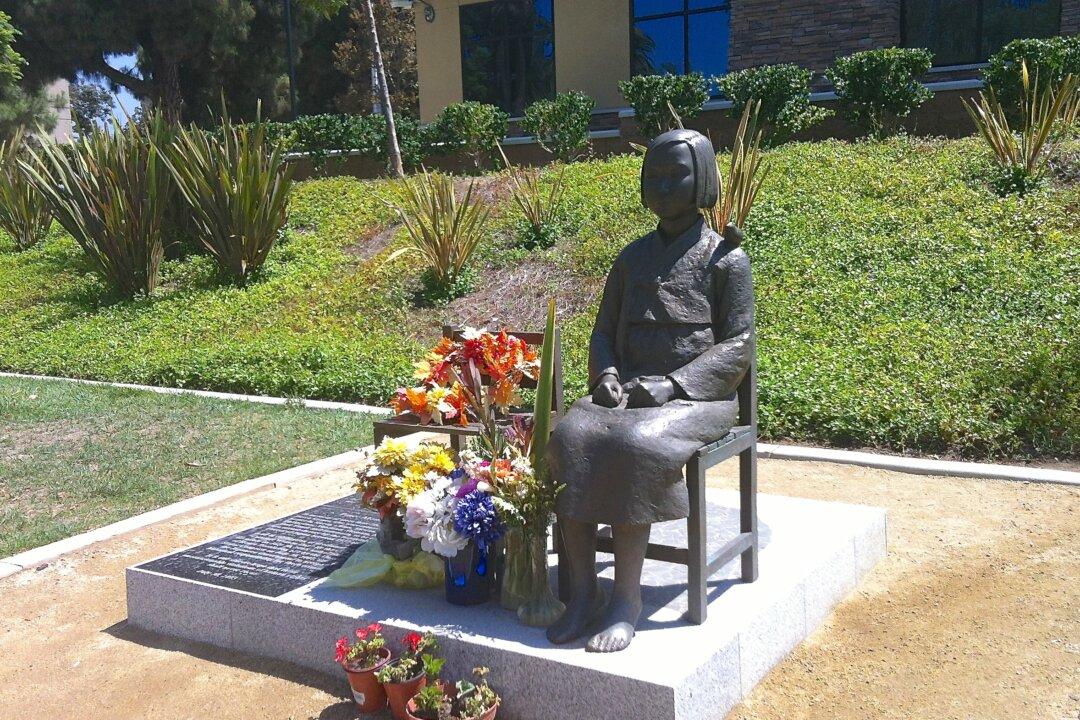GLENDALE, Calif.—A bronze statue of a seated young women with a small bird on her shoulder has become the center of a Korean-Japanese debate on the history of World War II.
It was installed a year ago in a park in Glendale in northern Los Angeles County a year ago to memorialize an estimated 200,000 women forced into sexual slavery by Japanese soldiers during WWII.
Last Monday, a federal court dismissed a lawsuit aimed at removing the statue.
The lawsuit was started in February by two individuals and a group called the Global Alliance for Historical Truth, which incidentally was also established in February.
They charged that by installing the statue, the city is conducting foreign affairs, a power reserved to the Federal government.
The judge said the plaintiffs failed to show any tangible harm from the statue’s placement in the park. He also disputed the claim that the statue interfered with the federal government’s foreign affairs power.
The judge wrote in his ruling, “The fact that local residents feel disinclined to visit a local park is simply not the type of injury that can be considered to be in the ‘line of causation’ for alleged violations of the foreign affairs power and Supremacy Clause.”
Michael Garcia, Glendale City’s Attorney, said in a statement, “We are pleased that the Court recognized our City Council’s right to make public pronouncements on matters important to our community.”
The plaintiffs in the case plans to appeal the decision.
History Debated
Conservative Japanese say the claims of widespread sexual slavery during WWII by the Japanese military are overstated. Koreans and other occupied countries say the Japanese are in denial of their history, despite several high level Japanese officials admitting to the army’s involvement.
The Glendale City Council received hundreds of emails opposed to the statue. Some conservative Japanese politicians even traveled to Glendale to ask the City Council to remove the memorial.
However, there are many more who are in support of the statue.
Glendale resident Vigen Karimimassihi said, “We should support such a monument. If there are some atrocities that have been done by people, we should not forget.”
A similar memorial was proposed for the city of Buena Park in Orange County last year, but the city council decided against it, saying they did not think it was the city’s place to memorialize such an international issue.
Another memorial installed in Palisades Park, New Jersey met with similar attention from Japanese diplomats, but the Mayor there refused to back down, saying, “It was for educational purposes so that the world and people knew that during war, travesties that happen, should never happen.”





